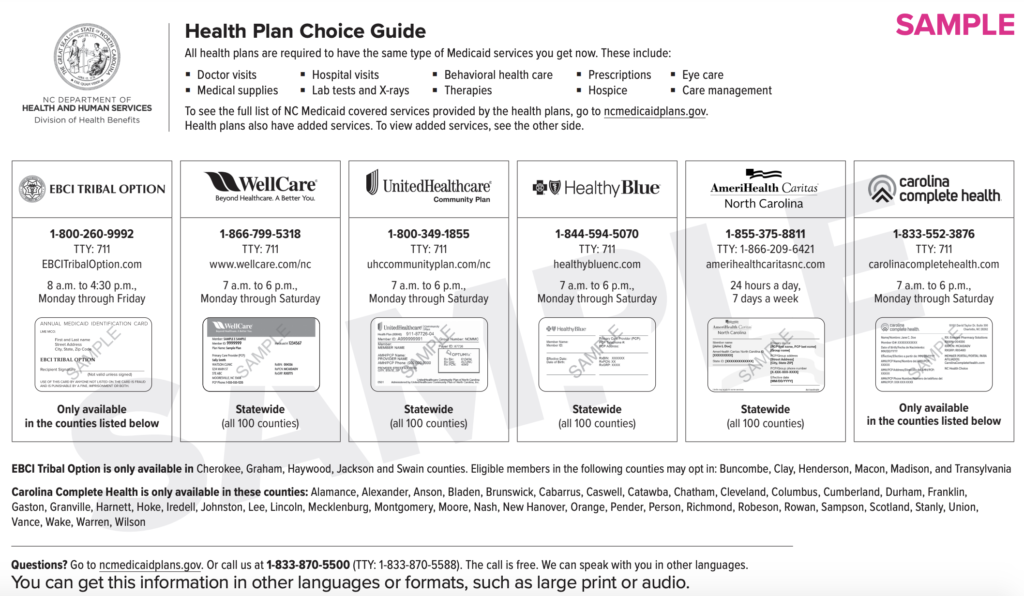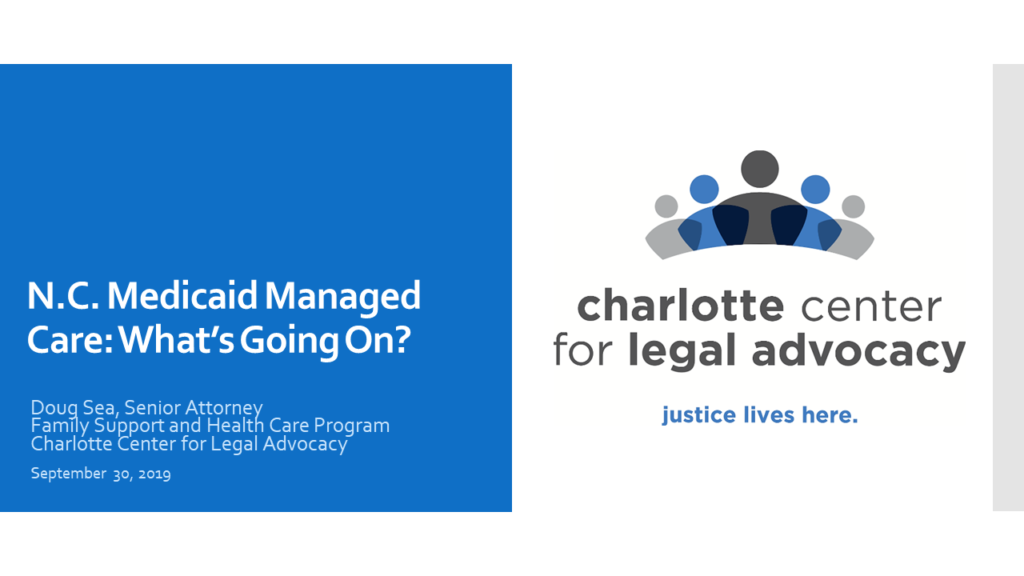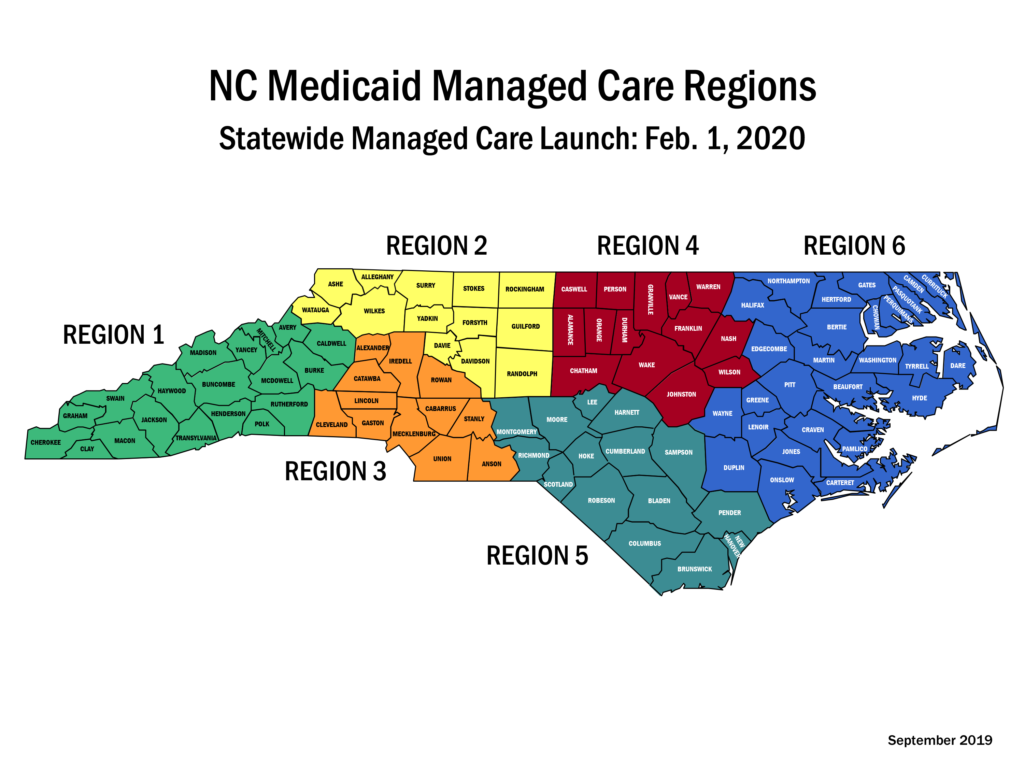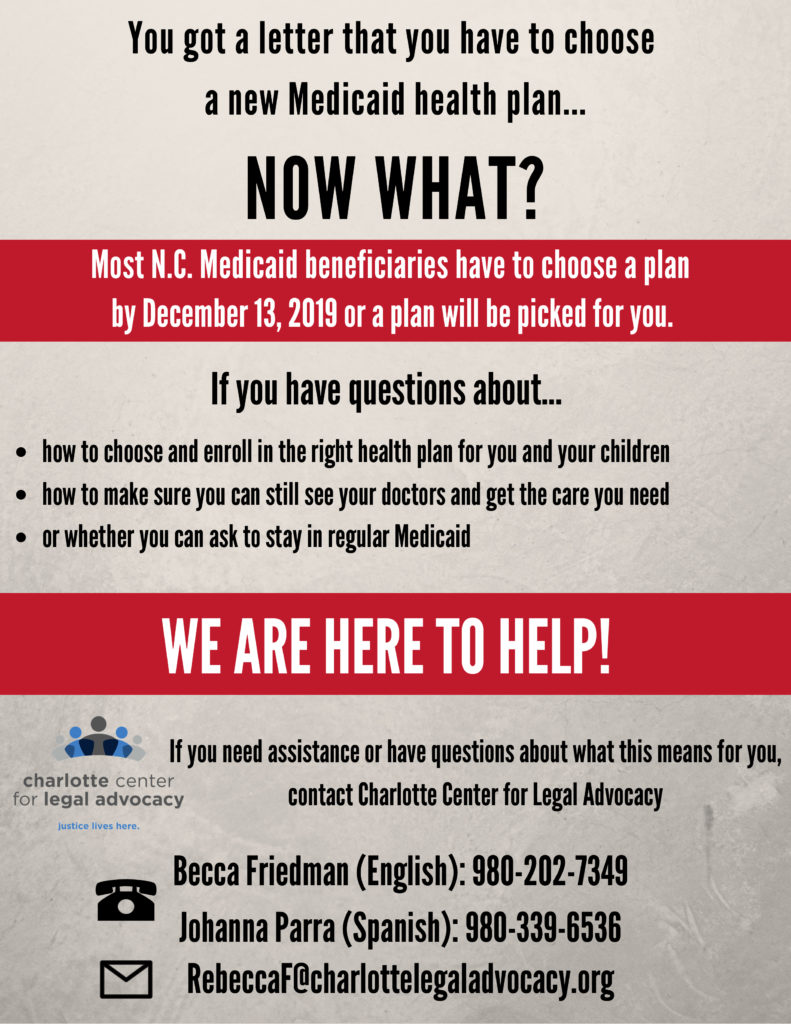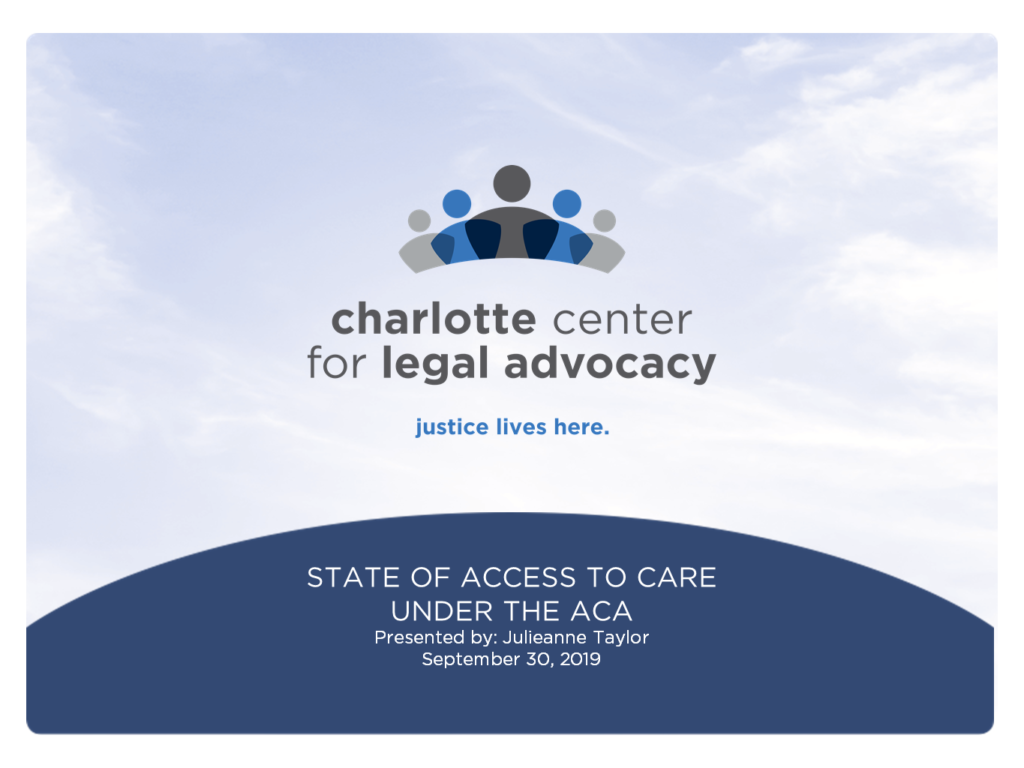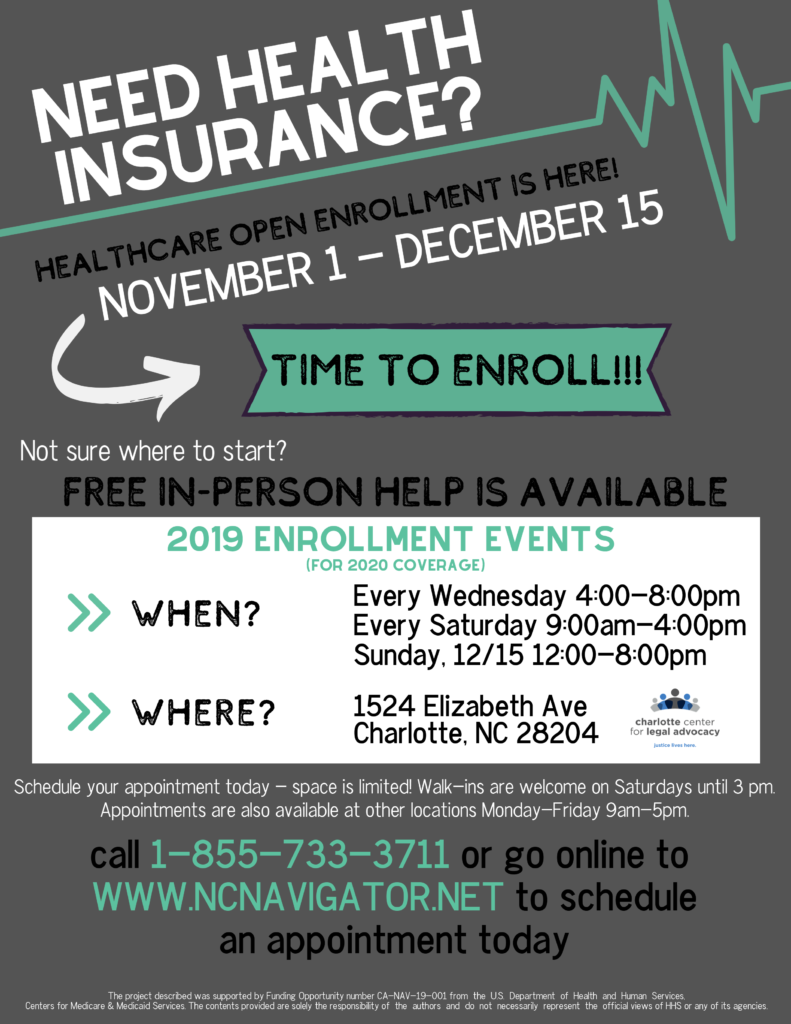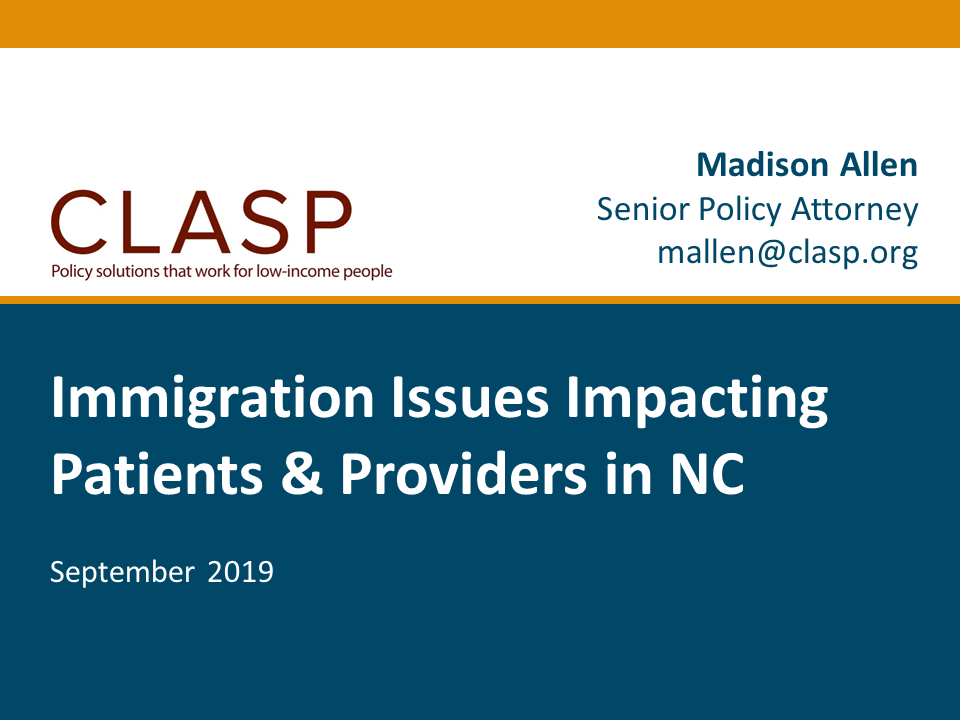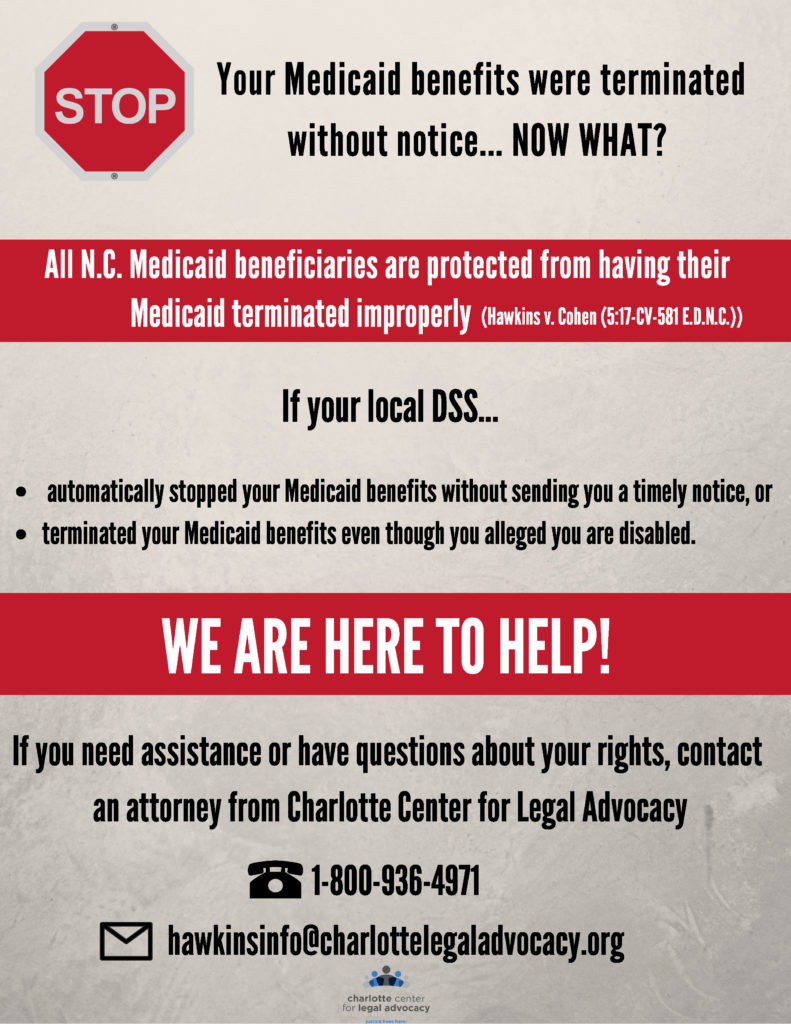Health insurance and access to health care are more important now than ever before. No one should have to make the hard choice between getting critical care and making ends meet.
But half a million people in N.C. do not have health insurance and thousands more are losing coverage with their jobs as our economy takes a massive hit during the COVID-19 crisis.
Our state is more vulnerable to this pandemic than it should be, but it’s not too late for our legislature to do the right thing.
Expanding Medicaid now would ensure access to health care for ALL North Carolinians, while bringing billions to our economy, creating thousands of jobs and supporting struggling rural hospitals that need to stay open, at a time when all of this support is critical to our state’s viability.
NOW is the time. Call or write to Senator Phil Berger and House Speaker Tim Moore TODAY!
Our legislature cannot ignore this need any longer, and its leaders need a clear reminder from us.
Charlotte Center for Legal Advocacy is proud to join the North Carolina Justice Center, N.C. Moms Rising and advocates across the state in calling for our legislative leaders to expand Medicaid.
Call 1-855-408-2357 to contact Senator Berger and Speaker Moore’s offices
Sample Phone Message:
Dear Senator Berger/Speaker Moore: Our state is more vulnerable to COVID-19 than it should be, but you can do the right thing. You can expand Medicaid to make sure everyone can get the health care they need during this crisis. As our neighbors continue to go uninsured and without care during this pandemic, we all are at risk for infection, complications and even death. Don’t continue to put our state at risk. Please expand Medicaid. We are depending on you.
Sample Email Message:
Dear Senator Berger/Speaker Moore,
We need our leadership to come together and figure out a solution that protects North Carolinians from COVID-19 and financial ruin. To do that, you must act now to expand Medicaid for more than 500,000 people.
The COVID-19 crisis is weakening our economy, workers and employers in ways that no other recession has before. We have seen unprecedented numbers of people lose their jobs and health insurance benefits in the middle of a public health crisis — when people need access to coverage the most.
The health of the person next to us affects our health and the person next to them too. We all need one another to be healthy and thriving to contribute to our economy and our community.
Those who continue to work in “essential” businesses to ensure we can meet our needs are the faces of North Carolina’s uninsured. They work in our grocery stores, delivery services and gas stations. They risk their health and their family’s health by going to work each day so that the rest of us can survive.
In risking so much, our state owes it to these workers to ensure access to critical care when they need it most through health coverage.
We need our leaders to rise above partisan norms in times of crisis to demonstrate they are willing to work for the health and welfare of our state. I urge you to expand health insurance coverage during this crisis.
Sincerely,
Update from last week:
THANK YOU to everyone who took the time to submit comments to for a stronger N.C. Last week, we called on you to advocate from home by submitting comments to the House Select Committee on COVID-19 response. There are various policies the state can consider to stabilize families and our economy, but here were three points we emphasized in our comments:
- Expand Medicaid
- Reform Our State’s Unemployment Insurance Program
- Restore funding for civil legal aid.
Read the full Action Alert here.
In case you haven’t gotten around to submitting something, there’s still time! Here’s some more inspiration on how our state can reform its unemployment insurance program from our friends at the North Carolina Justice Center via NC Policy Watch: Veteran attorney explains specific upgrades NC should make to its unemployment insurance system.
Share this message
Encourage others to contact our legislative leaders and tell them now is the time to expand Medicaid.
